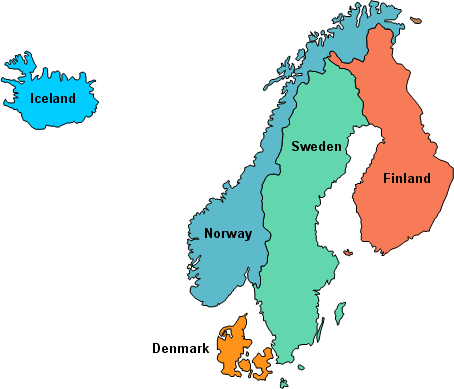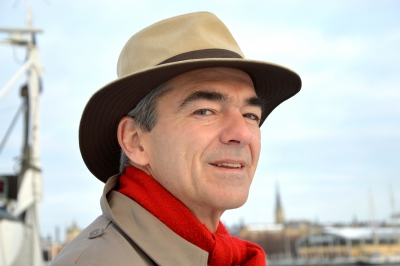This week, our writers bring you the latest news from Argentina, Sri Lanka, and Sweden. In Argentina, Betina González’s first novel to be translated into English, American Delirium, has been released; in Sri Lanka, renowned dramatist Asoka Handagama will premiere his new play in March; and in Sweden, the Swedish Arts Council has responded to the need for increased funding in the literary and culture sector. Read on to find out more!
Allison Braden, Editor-at-Large, reporting from Argentina
On Tuesday, Argentine novelist Betina González made her English-language debut with the publication of American Delirium (Henry Holt and Co.). The book chronicles the chaos that ensues after a strange hallucinogen invades a fictional U.S. town, and the stories of three central characters—Beryl, Berenice, and Vik—diverge and collide in a narrative that plays with notions of utopia and dystopia. To kick off publicity events for the novel, bookstore Politics and Prose in Washington, D.C., hosted a virtual conversation between González and her translator, Heather Cleary.
Moderator Idra Novey, who is herself a novelist and award-winning translator, focused in part on issues of translation. González began writing the book, which is set in the U.S., while living in Pittsburgh, Pennsylvania. González described how English served as a “ghost structure” behind her writing in Spanish. That “special Spanish,” as she called it, was also shaped in part by the various Spanish dialects and tones she encountered while living in the U.S.; incorporating those regional differences into the fabric of the narrative contributed to its hallucinogenic, dreamlike atmosphere. “The language,” she said, “needed to collaborate” with the plot.
The translation process began, Cleary explained, with close reading and a conversation with González about the three characters’ voices. Berenice and Vik’s sections are both written in the third-person, but the narration evinces subtle differences that reflect their respective personalities. Vik hails from an invented island in the Caribbean, which experienced first Spanish, then British colonization. (González conducted extensive research to shape his origins. In total, the book took about seven years to write.) To help capture González’s careful nuance, Cleary infused Vik’s sections with Briticisms, which hint at his home’s colonial history. (Vik, Cleary pointed out, was difficult to translate in part because he’s “kind of an asshole,” who is “as resistant on the page as he is in real life.”) READ MORE…








